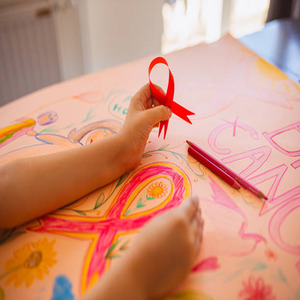
The Development and Causes of Cancer
Cancer is a complex group of diseases characterized by uncontrolled cell growth and spread to other parts of the body. Understanding its development and causes involves exploring various biological, environmental, and lifestyle factors.
Development of Cancer
1. Genetic Mutations:
- Initiation: Cancer begins with genetic mutations in the DNA of a cell. These mutations can occur due to errors during cell division or be induced by external factors.
- Promotion: Once a cell acquires mutations that give it a growth advantage, it starts to proliferate uncontrollably. This is often facilitated by mutations in oncogenes (genes that drive cancer growth) and tumor suppressor genes (genes that normally inhibit cancer growth).
- Progression: As the mutated cells continue to divide, they accumulate more genetic changes. This can lead to a more aggressive cancer phenotype, with cells acquiring the ability to invade surrounding tissues and metastasize to distant organs.
2. Tumor Microenvironment:
- Cancer cells do not grow in isolation; they interact with surrounding cells, blood vessels, and the extracellular matrix. This microenvironment can influence cancer development and progression, often promoting tumor growth and resistance to treatment.
3. Angiogenesis:
- For tumors to grow beyond a small size, they need a blood supply. Cancer cells can stimulate the formation of new blood vessels (angiogenesis) to provide nutrients and oxygen to the growing tumor.
Causes of Cancer
1. Genetic Factors:
- Inherited Mutations: Some cancers are caused by inherited mutations in specific genes (e.g., BRCA1 and BRCA2 mutations linked to breast cancer). These mutations significantly increase the risk of developing cancer.
- Family History: A family history of cancer can indicate a genetic predisposition, although not all hereditary cancers are linked to known genetic mutations.
2. Environmental Factors:
- Carcinogens: Exposure to certain chemicals and substances can increase cancer risk. Examples include tobacco smoke (linked to lung cancer), asbestos (linked to mesothelioma), and some industrial chemicals.
- Radiation: Ionizing radiation (e.g., from X-rays or radioactive materials) and ultraviolet (UV) radiation from the sun can damage DNA and increase cancer risk, particularly skin cancers.
3. Lifestyle Factors:
- Diet and Obesity: Poor diet and obesity are linked to various cancers. For instance, obesity is a risk factor for cancers such as breast, colon, and endometrial cancer.
- Alcohol Consumption: Excessive alcohol intake is associated with several types of cancer, including liver, breast, and esophageal cancers.
4. Infections:
- Certain viruses and bacteria are known to increase cancer risk. For example, human papillomavirus (HPV) is linked to cervical cancer, while Helicobacter pylori infection is associated with stomach cancer.
5. Chronic Inflammation:
- Persistent inflammation caused by conditions like Crohn's disease or ulcerative colitis can increase the risk of developing cancers in the affected organs.
Conclusion
Cancer development is a multifaceted process involving genetic mutations, cellular interactions, and various external factors. While some causes of cancer are beyond our control, such as genetic predispositions, many are related to lifestyle and environmental exposures. Understanding these causes helps in developing preventive strategies, early detection methods, and effective treatments.
Dr Avinash Talele (Restora Onco Care Centre) Best Medical Oncologist | Hematologist | cancer treatment Doctor in Dombivali , Thane, Navi mumbai




